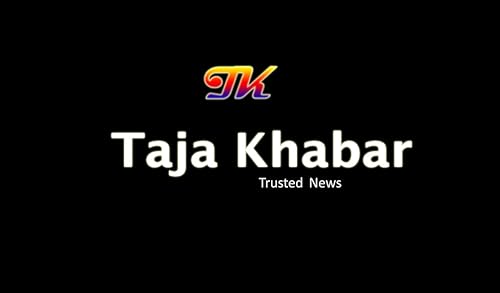In a world filled with information overload, separating fact from fiction can feel like finding a needle in a haystack. Especially when it comes to the ever-evolving landscape of news and updates. But fear not, because in this comprehensive guide, we delve into the realm of khabar – the Hindi word for news, to uncover the truth behind the headlines. Join us on this journey as we navigate through the intricacies of staying informed in today’s digital age.
Table of Contents
| Sr# | Headings |
| 1 | What is Khabar? |
| 2 | The Evolution of News |
| 3 | The Importance of Khabar |
| 4 | Reliable Sources |
| 5 | Fact-Checking Tools |
| 6 | Navigating Sensationalism |
| 7 | Social Media and Khabar |
| 8 | Ethics in Journalism |
| 9 | Staying Informed Safely |
| 10 | Conclusion |
1. What is Khabar?
Khabar encompasses everything from breaking news to in-depth analysis, from local events to global happenings. It’s the lifeblood of our society, keeping us informed and connected to the world around us. But in today’s fast-paced digital era, the sheer volume of information can be overwhelming. That’s why it’s essential to understand what constitutes reliable ‘khabar.’
2. The Evolution of News
From ancient civilizations carving news on stone tablets to the invention of the printing press, the dissemination of information has undergone a remarkable evolution. Today, with the advent of the internet and social media, news travels at the speed of light. But with this rapid dissemination comes the challenge of discerning truth from falsehood.
3. The Importance of Khabar
Why does khabar matter? Because it shapes our understanding of the world, influences our decisions, and empowers us to participate in society. Whether it’s political developments, scientific breakthroughs, or cultural trends, staying informed is crucial for informed citizenship.
4. Reliable Sources
In a sea of information, how do we discern reliable sources from unreliable ones? Look for established news organizations with a track record of journalistic integrity. Avoid sources that peddle in sensationalism or clickbait headlines. Remember, quality over quantity.
5. Fact-Checking Tools
With the rise of misinformation, fact-checking tools have become indispensable. Websites like Snopes, FactCheck.org, and Politifact are invaluable resources for verifying the accuracy of news stories. Before sharing that sensational headline, take a moment to fact-check.
6. Navigating Sensationalism
Sensationalism sells, but at what cost? Beware of headlines designed to provoke an emotional response without providing context or nuance. Ask yourself: Is this too good (or too bad) to be true? When in doubt, dig deeper.
7. Social Media and Khabar
Social media has revolutionized the way we consume news, but it’s also a breeding ground for misinformation. Be wary of echo chambers and confirmation bias. Follow a diverse range of sources and critically evaluate the information you encounter.
8. Ethics in Journalism
Journalism is more than just reporting the news; it’s about upholding ethical standards and serving the public interest. From protecting sources to avoiding conflicts of interest, journalists play a crucial role in maintaining a free and informed society.
9. Staying Informed Safely
In the age of digital misinformation, staying informed safely is paramount. Practice media literacy skills, fact-check before sharing, and be mindful of your online footprint. Remember, you are the gatekeeper of your own ‘khabar.’
10. Conclusion
In conclusion, khabar is not just about headlines and breaking news; it’s about understanding the world around us. By embracing critical thinking and media literacy, we can navigate the complexities of the modern media landscape with confidence and clarity.
FAQs
What are the best practices for identifying reliable news sources?
To identify reliable news sources, look for established organizations with a history of journalistic integrity. Avoid sources that prioritize sensationalism over accuracy.
How can I fact-check news stories effectively?
Fact-checking news stories involves cross-referencing information with credible sources, using fact-checking websites, and critically evaluating the evidence presented.
Why is it important to stay informed in today’s digital age?
Staying informed allows us to make informed decisions, engage in informed discourse, and participate in civic life effectively. It’s essential for a functioning democracy.
What role do social media platforms play in the dissemination of news?
Social media platforms have become significant sources of news for many people, but they also pose challenges due to the spread of misinformation and echo chambers.
How can I avoid falling victim to misinformation online?
To avoid falling victim to misinformation online, practice media literacy, fact-check information before sharing, and be skeptical of sensationalist headlines and clickbait.

